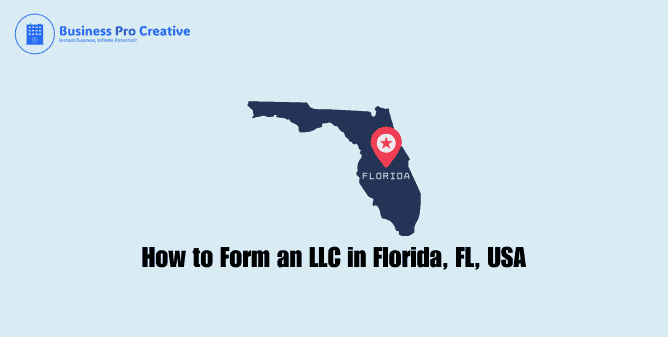
To form an LLC in Florida, you’ll need to choose a unique business name, appoint a registered agent, and file Articles of Organization with the state. You’ll also need to obtain an EIN from the IRS and create an operating agreement. The initial filing fee is $125, with additional costs for annual reports and possible registered agent fees. Florida offers a pro-business environment with no personal income tax and low corporate taxes. While LLCs provide personal asset protection and tax flexibility, they do require ongoing compliance and record-keeping. Exploring the state’s diverse cities and networking resources can help you maximize your LLC’s potential.
What Are the Steps to Form an LLC in Florida?
In light of Florida’s business-friendly environment, forming an LLC in the Sunshine State is a straightforward process.
To create your LLC, you’ll need to follow the below points.
- Choose a unique business name
- Appoint a registered agent
- File Articles of Organization with the state
- Obtain an EIN from the IRS
- Create an operating agreement
- Apply for necessary licenses and permits
What Are the Costs and Fees for an LLC in Florida?
Setting up an LLC in Florida comes with various costs and fees you’ll need to factor into your budget.
The initial filing fee for your Articles of Organization is $125. You’ll also pay $138.75 for the first year’s annual report.
Other potential costs include registered agent fees, name reservation ($25), and certified copies of documents ($30).
Don’t forget about ongoing expenses like annual report filings and any professional services you may require.
What Are the Pros and Cons of Forming an LLC in Florida?
Forming an LLC in Florida offers several advantages and a few potential drawbacks.
Pros include personal asset protection, tax flexibility, and credibility. You’ll also enjoy less paperwork compared to corporations.
However, cons involve higher costs than sole proprietorships, potential self-employment taxes, and the need for meticulous record-keeping.
Consider these factors carefully when deciding if an LLC is right for your business in Florida.
What Are the Compliance and Ongoing Requirements for an LLC in Florida?
Once you’ve formed your LLC in Florida, you’ll need to stay on top of several ongoing compliance requirements.
These include filing an annual report, paying state fees, maintaining accurate records, and keeping your registered agent information current.
You’ll also need to renew your business licenses, file taxes, and hold regular member meetings.
Failing to meet these obligations could result in penalties or dissolution of your LLC.
What Are the Best Cities for Business in Florida?
While meeting compliance requirements is important for your LLC, choosing the right location can greatly impact your business’s success. Florida offers several thriving cities for entrepreneurs. Consider these top business-friendly locations:
| City | Key Industries | Business Advantages |
|---|---|---|
| Miami | Finance, Tourism | International hub, diverse workforce |
| Orlando | Entertainment, Tech | Low taxes, skilled labor pool |
| Tampa | Healthcare, IT | Affordable real estate, growing startup scene |
| Jacksonville | Logistics, Manufacturing | Strategic port location, business incentives |
What Is the Economic and Legal Environment in Florida?
The economic and legal landscape in Florida offers a fertile ground for businesses to thrive.
You’ll find a pro-business environment with no personal income tax and low corporate taxes. Florida’s legal system supports business growth through streamlined regulations and strong intellectual property protections.
The state’s diverse economy, growing population, and robust infrastructure make it an attractive destination for entrepreneurs and established companies alike.
What Networking and Business Support Resources Are Available in Florida?
Florida’s bustling business ecosystem is ripe with networking and support resources for entrepreneurs and established companies alike.
You’ll find chambers of commerce, industry associations, and Small Business Development Centers across the state. These organizations offer workshops, mentoring, and networking events.
Additionally, coworking spaces, startup incubators, and accelerators provide valuable resources and connections for new businesses.
Don’t forget to leverage online platforms like LinkedIn and Meetup for virtual networking opportunities.
Looking to expand your business beyond Florida? Check below for nearby states.
